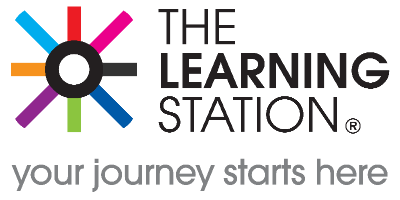According to a news report by the BBC, it shows that adults from across 31 countries are showing significant signs of weakness when it comes to financial skills. This comes from a study conducted by both Cambridge University and University College London.
To me, this should not be too much of a surprise. From my own personal experience, splitting the cost of a meal with friends is a mental arithmetic challenge itself. Thankfully, we do have smartphones that have calculators to help us split the bill.
But on a more serious note, the study actually raises a very serious concern. Adults, with poor financial literacy skills, have a high chance of encountering many problems which can be prevented. Such problems include heavy debts, poor well-being and being unintentionally misled on various money matters.
The study was conducted over 31 countries and involved asking participants to complete an assessment, known as the Programme for International Assessment for Adult Competencies, which consisted of four questions that assess numerical skills being applied to everyday financial tasks. Over 100,000 participants completed the assessment back in 2011.
To give you an example of a question that was on the test, here's one below:
"If you bought four packs of tea: chamomile ($4.60), green ($4.15), black ($3.35) and lemon ($1.80) with a $20 note, how much change would you get?"
(Have a go, the answer will be revealed at the end of this article).
 It is really important to have strong financial skills. It could help us to reach a more educated decision before borrowing money from a payday loan site. As well as knowing how to ration our spending so that we can set aside some savings.
Numeracy skills is a big concern for many countries. And taking the time to improving these skills is good for your own well-being and self-esteem. But more importantly, having good numeracy skills can serve as a huge advantage when it comes to looking for work. Employers really appreciate strong numeracy skills.
Even taking the time to learn Excel can also help to improve your financial skills since you can use it to manage your budget. And it is also wise to invest in gaining a functional skills qualification in Maths.
Functional skills are a GCSE equivalent qualification. They are a welcome addition to your CV and can even help you a get a place at University.
It is really important to have strong financial skills. It could help us to reach a more educated decision before borrowing money from a payday loan site. As well as knowing how to ration our spending so that we can set aside some savings.
Numeracy skills is a big concern for many countries. And taking the time to improving these skills is good for your own well-being and self-esteem. But more importantly, having good numeracy skills can serve as a huge advantage when it comes to looking for work. Employers really appreciate strong numeracy skills.
Even taking the time to learn Excel can also help to improve your financial skills since you can use it to manage your budget. And it is also wise to invest in gaining a functional skills qualification in Maths.
Functional skills are a GCSE equivalent qualification. They are a welcome addition to your CV and can even help you a get a place at University.
What Does The Report Say About Our Financial Skills?
On analysis of the results, the report shows that a third of participants from England and Northern Ireland (counted as one country in the report) were not able to work out the correct change when buying a handful of goods. Across all 31 countries, nearly half the participants were not able to read a simple line graph, which is commonly used to share information about the economy. And one in three adults could not work out the final total cost to pay when given the per unit cost, e.g. cost per litre or per kilo. Overall, participants from Estonia, Finland and Japan performed well across all four questions, where as those from Chile, England and Northern Ireland, Turkey, Italy and Spain had shown to have the weakest financial skills. The report concludes that immediate "government intervention" must be to taken to improve our financial skills. And it is understandable to see why.Why Are Financial Skills Important?
 It is really important to have strong financial skills. It could help us to reach a more educated decision before borrowing money from a payday loan site. As well as knowing how to ration our spending so that we can set aside some savings.
Numeracy skills is a big concern for many countries. And taking the time to improving these skills is good for your own well-being and self-esteem. But more importantly, having good numeracy skills can serve as a huge advantage when it comes to looking for work. Employers really appreciate strong numeracy skills.
Even taking the time to learn Excel can also help to improve your financial skills since you can use it to manage your budget. And it is also wise to invest in gaining a functional skills qualification in Maths.
Functional skills are a GCSE equivalent qualification. They are a welcome addition to your CV and can even help you a get a place at University.
It is really important to have strong financial skills. It could help us to reach a more educated decision before borrowing money from a payday loan site. As well as knowing how to ration our spending so that we can set aside some savings.
Numeracy skills is a big concern for many countries. And taking the time to improving these skills is good for your own well-being and self-esteem. But more importantly, having good numeracy skills can serve as a huge advantage when it comes to looking for work. Employers really appreciate strong numeracy skills.
Even taking the time to learn Excel can also help to improve your financial skills since you can use it to manage your budget. And it is also wise to invest in gaining a functional skills qualification in Maths.
Functional skills are a GCSE equivalent qualification. They are a welcome addition to your CV and can even help you a get a place at University.



 Student Login
Student Login My Account
My Account